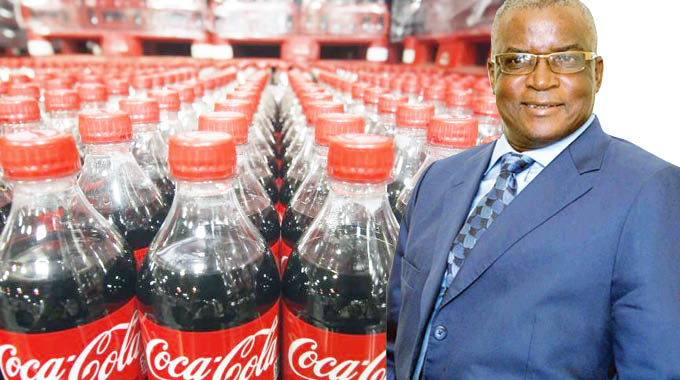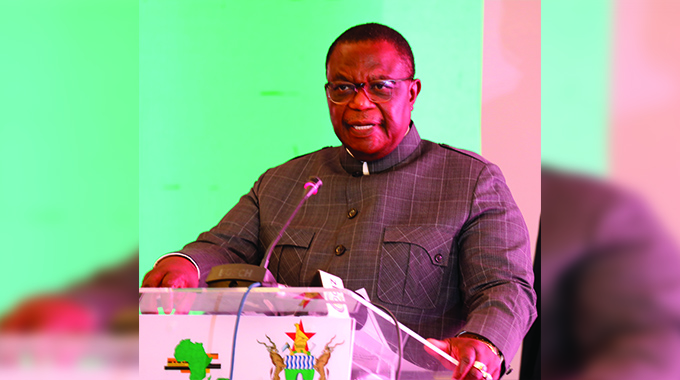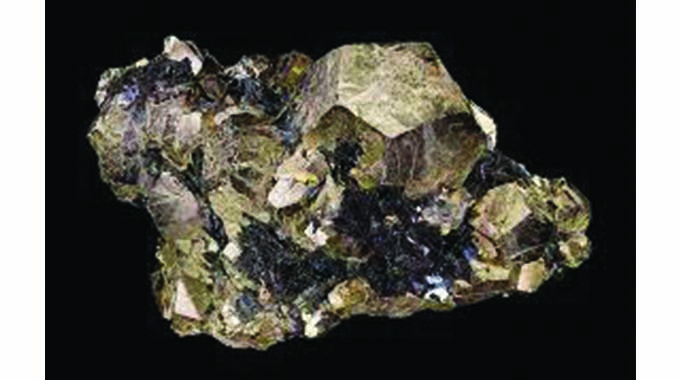Delta, Coca-Cola work on bottling agreement

Oliver Kazunga, Acting Business Editor
ZIMBABWE Stock Exchange-listed Delta Corporation Limited says it is working in collaboration with The Coca-Cola Company (TCCC) to finalise the renewal of a three-year bottler’s agreement ending September 30, 2022.
In a statement accompanying financial results for the period ended September 30, 2019, Delta Corporation chairman Mr Canaan Dube reminded shareholders that the beverages manufacturer was trading under a cautionary issued with respect to the notice received from TCCC advising of an intention to terminate the bottler’s agreements with the group entities.
“This followed the merger of AB InBev and SABMiller Plc in October 2016 and the subsequent agreement in principle reached between TCCC and AB InBev to explore options to restructure the bottling operations in a number of countries.
“The parties are finalising the renewal of the Bottlers Agreement for a three-year term to September 2022,” he said.
In the outlook, Mr Dube said the economy was yet to settle from the turbulence caused by transition from the multi-currency system to the Zimbabwe dollar and the accompanying policy measures in line with the Government’s Transitional Stabilisation Programme.
“The operating environment is expected to remain challenging for the remainder of the year.
“The company will manage the emerging risks while striving to capture all available opportunities,” he said.
During the period under review, the country’s largest beverages producer continued with a streak of a massive decline in volumes across all its segments as consumers cut spending on less basic commodities on the back of reduced disposable incomes.
Since the liberalisation of the exchange rate in February 2019, the country has been grappling with rising inflation although consumer prices somehow cooled in November due to a relative stability of the exchange rate resulting from tight control of broad money supply growth.
Data from Zimbabwe National Statistical Agency, showed that Zimbabwe’s inflation slowed to 17,5 percent month on month in November from 38,75 percent in October, the lowest rate in five months.
Lager beer volumes declined 48 percent compared to the same period in 2018, sorghum beer volumes declined by 15 percent, while sparkling beverages were down 56 percent.
Mr Dube said the pricing of lagers was moderated to maintain affordability given the prevailing challenges.
The premium category has held its contribution driven by Zambezi lager.
The prices of the major inputs such as maize and imported packaging materials rose ahead of disposable incomes, which put pressure on the sorghum beer prices.
This led consumers switching to more affordable brands and packs within the category.
Consumer acceptance of the recently launched returnable pack has been encouraging.
Product supply is constrained by capacity and power supply disruptions.
Chibuku Super and Shake-Shake were the dominant packs, he said.
While sparkling beverages volume recovered in the last quarter on the back of improved product supply and moderated retail pricing, raw material supply, which are largely imported remains a challenge.
Volumes at National Breweries PLC (Zambia) went down by 20 percent from last year’s record, which is partly due to higher pricing on the back of a steep increase in maize prices and the depreciation of the Kwacha.
African Distillers recorded a soft volume out-turn at 41 percent below prior year due to limitations in accessing foreign currency. It also recorded a decline in volumes.
The group’s associate entity, Schweppes Holdings Africa, experienced reduced volume performance at 33 percent below prior year, which was a result of limited foreign currency supply for packaging material and reduced demand due to higher pricing.
During the period under review, Delta’s revenue slightly dropped by 2 percent to $1,5 billion earnings before interest and tax increased by 53 percent to $464 million driven by replacement cost pricing in response to inflationary pressures.
Overheads remained under control despite the foreign exchange induced cost escalations, said Mr Dube.
The business remains cash generative with a closing cash balance of $296 million.
Foreign currency exposure of US$72 million remains a concern to Delta. — @okazunga.











Comments